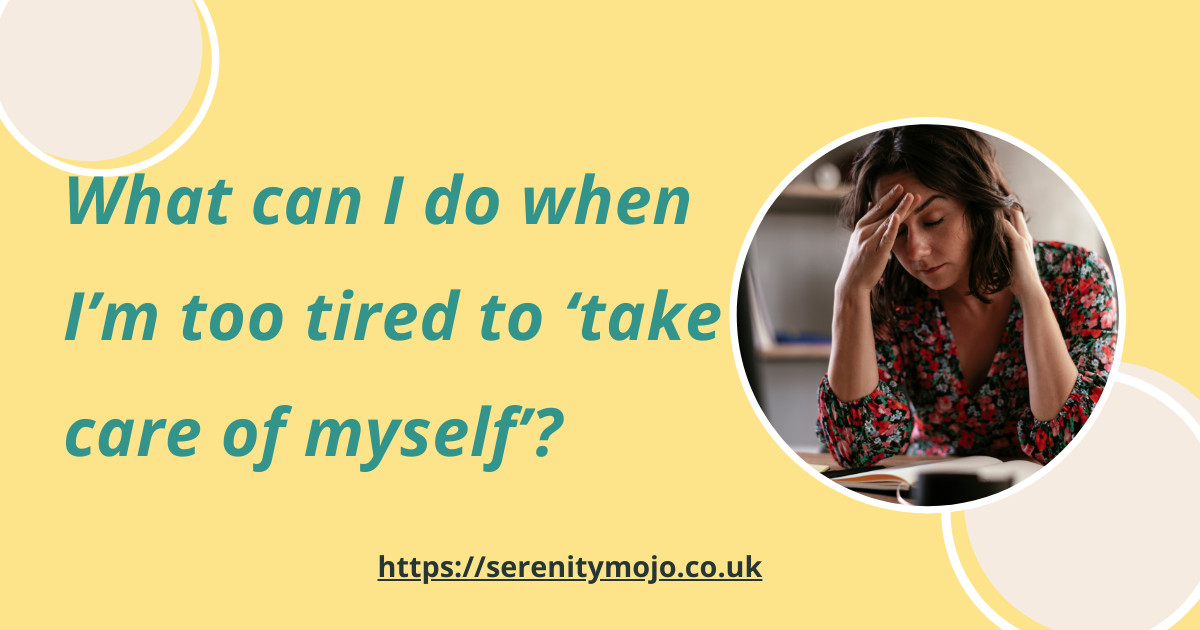
Feeling overwhelmed and too exhausted to focus on self-care is a common struggle for many women. Between juggling work, family, and personal responsibilities, finding the energy to take care of yourself can seem like an impossible task. However, neglecting self-care can lead to burnout and decreased well-being. This is where the concepts of micro-self-care and energy budgeting come into play. These strategies are designed to help you recharge and maintain your health, even on the busiest of days.
In this blog post, we'll explore practical, beginner-friendly tips that can help you incorporate tiny, doable self-care practices into your daily routine.
Actionable Micro-Self-Care and Energy Budgeting Tips
Identify Your Energy Drains and Gains
The first step in effective energy budgeting is understanding what activities drain your energy and which ones replenish it. Take a few minutes to jot down your daily activities and rate them on a scale of 1 to 10, with 1 being extremely draining and 10 being highly energising. Once you have a clear picture, you can start to prioritise activities that give you energy and minimize those that deplete you.
The first step in effective energy budgeting is understanding what activities drain your energy and which ones replenish it. Take a few minutes to jot down your daily activities and rate them on a scale of 1 to 10, with 1 being extremely draining and 10 being highly energising. Once you have a clear picture, you can start to prioritise activities that give you energy and minimize those that deplete you.
Incorporate Micro-Self-Care Moments
Micro-self-care involves small, manageable actions that you can fit into your day without feeling overwhelmed. Here are a few ideas:
Micro-self-care involves small, manageable actions that you can fit into your day without feeling overwhelmed. Here are a few ideas:
- Take a 5-Minute Breathing Break: Set a timer for five minutes and focus solely on your breathing. Inhale deeply through your nose, hold for a few seconds, and exhale slowly through your nose. This simple practice can help reduce stress and increase your energy levels.
- Enjoy a Cup of Tea: Brew your favorite tea and take a few minutes to savour it. Remember to notice what it looks like, the smell of it, and then the taste. The warmth and ritual of drinking tea can be incredibly soothing and grounding.
- Listen to a Short Meditation: There are countless free meditation apps and podcasts available. Choose a 5-10 minute guided meditation and let it help you reset and recharge.
Prioritise Sleep
While it might seem counterintuitive when you're already feeling exhausted, prioritising sleep is crucial for energy budgeting. Even if you can't get a full eight hours, try to establish a consistent bedtime routine. This could include dimming the lights, reading a book, or practicing a short relaxation technique. Aim to go to bed and wake up at the same time every day to help regulate your body's internal clock.
While it might seem counterintuitive when you're already feeling exhausted, prioritising sleep is crucial for energy budgeting. Even if you can't get a full eight hours, try to establish a consistent bedtime routine. This could include dimming the lights, reading a book, or practicing a short relaxation technique. Aim to go to bed and wake up at the same time every day to help regulate your body's internal clock.
Set Boundaries
Learning to say no and setting boundaries is essential for managing your energy. If you find yourself constantly overcommitting, take a step back and evaluate which obligations are truly necessary. It's okay to decline invitations or delegate tasks when you need to focus on recharging.
Learning to say no and setting boundaries is essential for managing your energy. If you find yourself constantly overcommitting, take a step back and evaluate which obligations are truly necessary. It's okay to decline invitations or delegate tasks when you need to focus on recharging.
Use Technology to Your Advantage
There are numerous apps and tools designed to help with self-care and energy management. Consider using a habit tracker to monitor your micro-self-care practices or a calendar app to schedule regular breaks throughout your day. These tools can help you stay accountable and ensure you're making time for yourself.
There are numerous apps and tools designed to help with self-care and energy management. Consider using a habit tracker to monitor your micro-self-care practices or a calendar app to schedule regular breaks throughout your day. These tools can help you stay accountable and ensure you're making time for yourself.
Connect with Others
Social connections can be a powerful source of energy. Even if you're feeling too tired to go out, a quick phone call or text message to a friend can boost your mood. Sharing your struggles with someone who understands can also provide emotional relief and help you feel less alone.
Social connections can be a powerful source of energy. Even if you're feeling too tired to go out, a quick phone call or text message to a friend can boost your mood. Sharing your struggles with someone who understands can also provide emotional relief and help you feel less alone.
Celebrate Small Wins
Acknowledge and celebrate the small steps you take towards better self-care. Whether it's taking a short walk, drinking enough water, or simply getting to bed on time, recognising these achievements can motivate you to keep going.
Acknowledge and celebrate the small steps you take towards better self-care. Whether it's taking a short walk, drinking enough water, or simply getting to bed on time, recognising these achievements can motivate you to keep going.
Conclusion
Incorporating micro-self-care and energy budgeting into your daily life can make a significant difference in how you feel and function. By identifying your energy drains and gains, setting boundaries, and making time for small self-care practices, you can start to reclaim your energy and well-being. Remember, self-care doesn't have to be time-consuming or complicated. It's about finding what works for you and making it a priority.
If you're ready to take the next step in your self-care journey, I encourage you to schedule a free wellness call. During this call, we can discuss your unique challenges and develop a personalised plan to help you feel more energised and balanced. Don't wait—take action today and start prioritising your well-being.
✨ Ready to Tune In to What Your Body’s Really Telling You? ✨
There’s a way to feel better—and it starts with clarity.
There’s a way to feel better—and it starts with clarity.
🌻 Track What Matters – Grab your free Wellness Tracker to start uncovering patterns.
🌻 Get a Personalised Review – Book your Serenity Health Review—a deep dive into your health story with tailored recommendations.
🌻 Ready to Go Deeper? – My wellness programmes guide you through hormone, energy, and gut support—without the overwhelm. You can Find Your Balance here.
🌻 Get a Personalised Review – Book your Serenity Health Review—a deep dive into your health story with tailored recommendations.
🌻 Ready to Go Deeper? – My wellness programmes guide you through hormone, energy, and gut support—without the overwhelm. You can Find Your Balance here.
to begin at your own pace.
Like what you’re learning? Let’s keep this going.
Subscribe for expert-backed guidance on vitality, balance, and healthy ageing—delivered in plain English, never overwhelm.
Subscribe for expert-backed guidance on vitality, balance, and healthy ageing—delivered in plain English, never overwhelm.











0 Comments